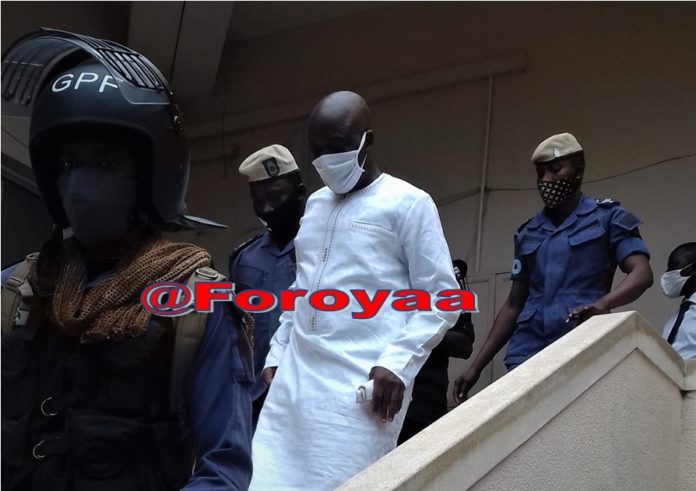By Yankuba Jallow
The High Court will on Monday, 24th August 2020 rule on whether Yankuba Touray should be allowed to testify in the case.
Lawyer Abdoulie Sisoho wants the High Court to allow Yankuba Touray to give evidence in his murder trial, but the State has objected to it.
53-year-old Touray was a long-serving Minister of Local Government and Lands. Retired Captain Touray was also a member of the Armed Forces Provisional Ruling Council (AFPRC) after they overthrew the PPP 30-year rule. The former military officer turned politician was accused of the murder of former Minister of Finance, Ousman Koro Ceesay under the AFPRC reign. The prosecution alleged that Touray (now a businessman) used a pestle-like weapon to murder Ceesay in June 1995 at his (Touray’s) residence. Touray denied any wrongdoing as he pleaded his constitutional immunity, but the court entered a plea of not guilty for him.
Lawyer Abdoulie Sisoho submitted that the court is guided by the 1997 Constitution of The Gambia, the principles of the common law and statute and the rules of the court.
He argued that both the Constitution and the Statute override the rules of procedure which is the Criminal Procedure Code.
The senior lawyer cited section 24 of the constitution which gives the accused person the right to speak. He submitted section 24 of the Constitution overrides the provision of the Criminal Procedure Code which the State relied upon. He also relied on the principles of natural justice – ‘audi alterem partem’ which means the right to be heard.
“The right to speak is an absolute right. It is an unalienable right. It cannot be taken,” Sisoho said.
He said as a matter of fact, the section of the Criminal Procedure Code that the State Counsel cited is not a mandatory provision but a discretionary proviso of law.
“The accused person has the absolute right to speak. He has chosen to speak. He should be allowed to speak in the interest of justice,” he said.
Sisoho said Touray’s testimony will only focus on the day of the incident to tell the court where he was at that particular night. He informed the court that it has nothing to do with the testimonies of the witnesses with respect to his house and connected matters.
Counsel Tah said section 24 of the Constitution guarantees the absolute right to fair hearing, but he was quick to add that the accused person was afforded the right to be heard as the first witness for the defence which he chose not. He submitted that the accused person cannot come again to testify after his witnesses have already testified.
“The accused person’s evidence has to start first before calling other witness,” Tah said as he pleaded with the court to preclude the accused person from testifying.
On Wednesday, Counsel Kimbeng T. Tah told the Court if the accused person wanted to testify in his own case, he (the accused) should have been the first person to give his testimony as the first defence witness, but he cannot testify after two of his defence witness have already testified.
“If the accused person has shown the desire to testify before the court, he would have testified first and I am sure that the Defence is aware of that,” he said.
The State Counsel argued that section 240 subsections 4 of the Criminal Procedure Code provides that an accused person can open his defence and should be the first to testify but cannot give any evidence before the court after another witness has testified. Lawyer Tahoe argued that this provision is a mandatory requirement.
“The accused person is always present in court and has listened to the testimonies of the Defence witnesses who have testified before the court, the principles of law and natural justice state that a person who wants to testify in his own case, he should be the first Defence witness,” he said.
Barrister Tah argued that if the other Defence witnesses have not testified before the court, the state would not have objected to the application made by the defence but in this circumstance, the accused was awarded his right to testify first as the first defence witness, but he did not and therefore he can no longer testify in the case.


















